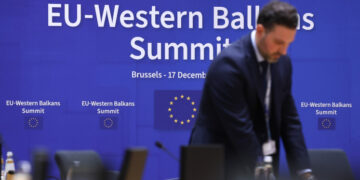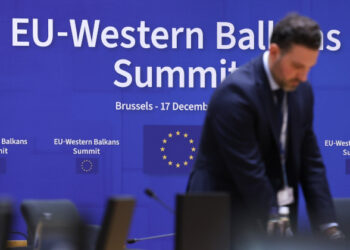In the text, adopted by 317 votes in favour, 206 against and with 123 abstentions, MEPs call for a significantly more ambitious multiannual financial framework (MFF) that can deliver on EU citizens’ rising expectations amid global instability. The current spending ceiling of 1% of the EU-27’s gross national income is not enough to address the growing number of crises and challenges, MEPs say. With the US retreating from its global role, spending will have to address Russia’s war of aggression on Ukraine, a highly challenging economic and social backdrop, a competitiveness gap and the worsening climate and biodiversity crisis, they add.
No to single national plans
Parliament rejects the Commission’s idea of replicating the Recovery and Resilience Facility’s “one national plan per Member State” model. Instead, MEPs call for a structure that ensures transparency and parliamentary accountability, and involves regional and local authorities and all relevant actors. The resolution also reaffirms cohesion policy’s role in deepening the single market, reducing inequality, and combating poverty.
Competitiveness and defence
MEPs consider the proposed “competitiveness fund” – which would merge several existing programmes – to be inadequate. Instead, they call for a new, targeted fund designed to leverage private and public investments through EU-backed de-risking mechanisms. Increased defence spending is necessary, they say, but this must not undermine social and environmental spending or long-standing policies.
Simplification, flexibility and the rule of law
The next long-term budget must cut unnecessary red tape for beneficiaries, but must not give the Commission more leeway without Parliament’s democratic scrutiny. A simpler budget must be a more transparent budget, MEPs say.
Flexibility in spending is also key – crisis-response capacities must be built into the budget for each policy area, with humanitarian aid ring-fenced. The next budget should include two special instruments: one for disaster relief and another for other unforeseen challenges. MEPs insist that access to funds must be tied to respect for EU values and the rule of law, and advocate a smart conditionality mechanism to avoid penalising beneficiaries for their governments’ actions.
Debt repayment and joint borrowing
MEPs insist that the repayment of NextGenerationEU borrowing costs must not endanger funding for key EU priorities. They call for clear separation between debt repayment and programme spending, and urge the Council to adopt new, genuine revenue sources. Joint borrowing is seen as a viable tool for addressing EU‑wide crises, such security and defence.
Quotes
“We want the next long-term EU budget to be better equipped to respond to today’s challenges –helping Europe act swiftly in crises, better protect its citizens, and build a stronger, more competitive Union. We also want adequate support for our long-standing priorities, such as agriculture and cohesion. We propose a responsible and justified increase in the next MFF – moving beyond the outdated 1% GNI cap. If we ask the EU to do more, we must equip it accordingly. The European Parliament will only approve a future-proof MFF that is flexible, effective, and ready for implementation by 1 January 2028. This is why we urge the Council and Commission to begin negotiations immediately after the Commission’s proposal in July,” Siegfried Mureşan (EPP, RO), co-rapporteur, said.
“People and regions must be at the centre of the next MFF and we must ensure that the EU is equipped to respond to its citizens’ needs. We need strong investments to boost strategic autonomy, economic resilience and green goals while leaving no one behind. In addition, an ambitious budget must promote social and territorial cohesion, include new and modernised sources of revenue, and guarantee sufficient funding for security, defence and preparedness to ensure just and thriving societies, while upholding the rule of law and the EU’s core values,” said Carla Tavares (S&D, PT), co-rapporteur.
Next steps
Parliament’s priorities are designed to feed into the Commission’s proposal on the EU’s next long‑term budget, due to be published in July 2025.
Background
The multiannual financial framework (MFF) is established for a period of seven years and lays down the maximum spending ceilings for different policy areas. After having secured Parliament’s consent, granted by a majority of its component members, EU governments adopt the MFF regulation by unanimity. The EU’s current long-term budget runs out on 31 December 2027.









































Discussion about this post